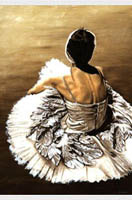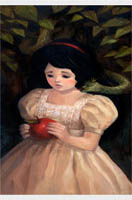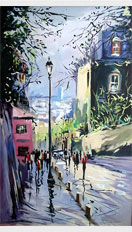Tadeusz Pruszkowski
 |
Personal Details: |
Name |
Tadeusz Pruszkowski |
Place of birth |
Warsaw, Poland |
Year of Birth |
1886 |
Year of death |
1918 |
Nationality |
Polish |
Paintings |
The Red Poppy -The Blue Poppy -The White Poppy -The Rose Garden -The Last Supper |
Tadeusz Pruszkowski (1851-1898) was a Polish writer and poet, and a major figure in the Young Poland movement, which sought to revive Polish literature and culture during the late 19th century. He was born in Kraków, and studied at the Jagiellonian University there. Pruszkowski's first published work, a collection of poems called The Message of Life, was released in 1876. This work was met with resounding success, and Pruszkowski soon became a major literary figure in Poland. His literary career subsequently flourished, and he wrote a number of novels, plays, and short stories, as well as writing for several popular Polish magazines.
He was also a prominent member of the Young Poland movement, which sought to promote Polish literature and culture during this time. Pruszkowski's works often dealt with themes of nationalism and patriotism, and his writing was highly influential in the Polish national awakening of the late 19th century. He wrote a number of poems and songs that highlighted the struggles of the Polish people, such as "Let the Poles Awake" and "The Bell of Freedom".
His works also often explored the themes of freedom and justice, and he was a passionate advocate for Polish independence. In addition to his literary works, Pruszkowski was also an active political figure. He was a strong proponent of the ideas of socialism and democracy, and he was a key figure in the formation of the Polish Socialist Party in 1893. He also served as a deputy in the Diet of Galicia between 1895 and 1897. Pruszkowski's works are still widely read and admired today, and his legacy as a major literary figure of the Young Poland movement continues to be celebrated.
His works have been translated into numerous languages, and his ideas continue to influence contemporary Polish literature. His passionate commitment to Polish culture and literature, as well as his political activism, continue to be a source of inspiration for many.







